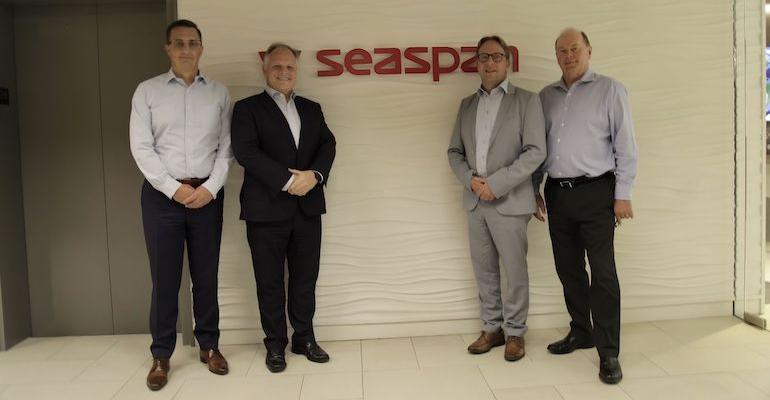Under the conversion commitment agreement with the after-sales division of engine firm MAN Energy Solutions the MAN B&W S90 prime movers on ships in the two companies’ fleets will be modified to dual-fuel ME-LGIM units. The contract includes an option for 45 more such conversions.
Hong Kong-headquartered Seaspan is the world’s largest lessor of containerships. Its business model centres on the long-term time charter of vessels to leading container lines. The company has 70 ships on order which, when delivered, will bring its fleet to about 200 vessels of 1.9 million teu.
Hamburg-based Hapag-Lloyd operates a fleet of 250 boxships with a total capacity of 1.8 million teu. The company has stated its aim of running ships in a climate-neutral way and achieving net-zero by 2045.
The engine company’s Thomas Leander, Head of Solutions and Site Manager, Frederikshavn, Denmark, commented: “Seaspan and Hapag-Lloyd, are significant maritime stakeholders with strong fleet-decarbonisation commitments and strategies. This Agreement shows clear intent to drive the industry transition toward zero-carbon shipping.
“Retrofitting existing engines to dual-fuel running,” he continued, “is one of the most effective ways to reduce greenhouse gas emissions and to derive greater efficiency and profitability from an existing shipping fleet, while simultaneously delivering fuel flexibility and extending operational lifetimes.
“Crucially, this also avoids the unnecessary building of additional tonnage with associated CO2 emissions, and thereby showcasing that retrofitting the existing maritime fleet is an important and feasible path. With this collaborative agreement, we proceed our journey providing decarbonisation solutions for the maritime industry,” he added.
The ME-LGIM (liquid gas injection methanol) engine was developed by MAN based on its ME series. There are about 8,500 of these engines, which operate on the Diesel principle, in operation today. Currently, there are more than 100 ME-LGIM engines on order or in service.
Copyright © 2024. All rights reserved. Seatrade, a trading name of Informa Markets (UK) Limited.
Add Seatrade Maritime News to your Google News feed.  |

